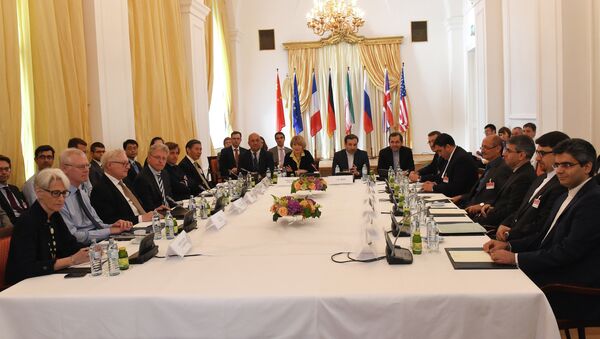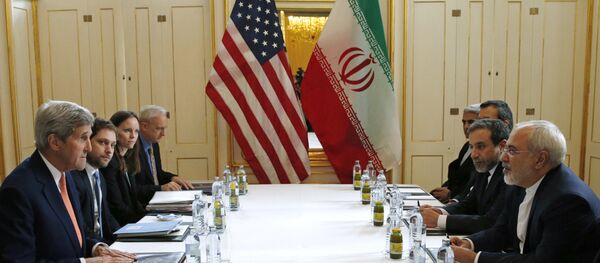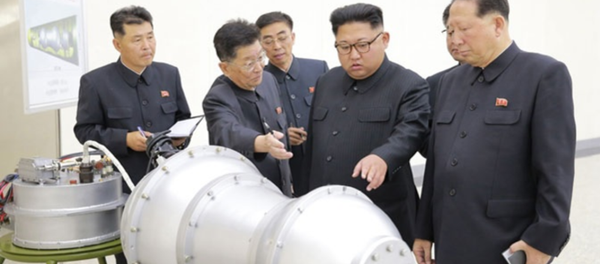MOSCOW (Sputnik) — Under the JCPOA, signed by the so-called P5+1 (permanent UN Security Council members plus Germany), the European Union and Iran in 2015, Tehran agreed to provide assurances that its nuclear program would remain solely peaceful, in exchange for the gradual lifting of nuclear-related sanctions against the country. The Iran Nuclear Agreement Review Act of 2015 stipulates that the US president must confirm to the US Congress every 90 days that Tehran is adhering to the terms of the nuclear deal.
The non-proliferation community warns that Trump’s possible endorsement to move away from the deal will jeopardize the existing balance as Iran is most likely to refuse to agree on a new agreement with tougher restrictions.
‘Better Deal’ Currently Impossible
Marc Finaud, the senior programme advisor and arms proliferation cluster leader with the Geneva Centre for Security Policy (GSCP), explained that if the aforementioned issues had been debated during the negotiations, the agreement would have never been reached. Moreover, there is no chance that Iran will agree to such limitations now.
"Most experts agree that no ‘better deal’ could be achieved. No one, except the Trump administration and Israel, wishes to reopen the agreement because no one wants to upset the existing balance. Iran will certainly not agree to more obligations if the P5+1 [five permanent members of the UN Security Council, namely China, France, Russia, United Kingdom, United States, plus Germany] do not accept more concessions on their part," Finaud explained.
Peter Hayes, an honorary professor at the Center for International Security Studies at the University of Sydney and the director of the Nautilus Institute for Security and Sustainability, believes that Iran might agree to consider amending the existing deal in the event that the United States offers more benefits, which would be viewed as part of "a joint strategy to overcome the many nuclear and non-nuclear issues that divide them."
"However, the US is going in the opposite direction, so I am not optimistic that a better ‘new deal’ can be negotiated," Hayes said.
Vague Arguments
Experts, however, say that non-compliance with the spirit is a weak argument when it comes to re-negotiating one of the most important non-proliferation accords of modern times.
"The ‘spirit’ could mean anything; it's impossible to comply with the ‘spirit.’ Only the agreement language and the verification of the commitments contained in it by a competent and independent agency can determine compliance," Hayes stated.
Isolating Iran would only make the existing issues worse, according to John Carlson, a member of the International Luxembourg Forum and the Asia-Pacific Leadership Network on Nuclear Non-Proliferation and Disarmament.
"The key point is, no progress is possible without building trust, and to renege on this deal will destroy trust, impacting on relations with Iran and other countries where negotiations will be required, such as North Korea," Carlson, who was also the director-general of the Australian Safeguards and Non-Proliferation Office, explained.
The expert stressed that the deal had a chance to survive if the US Congress did not re-impose sanctions. However, if new restrictions are introduced after all, "it will be much more difficult for the other parties to save the deal," Carlson stated.




